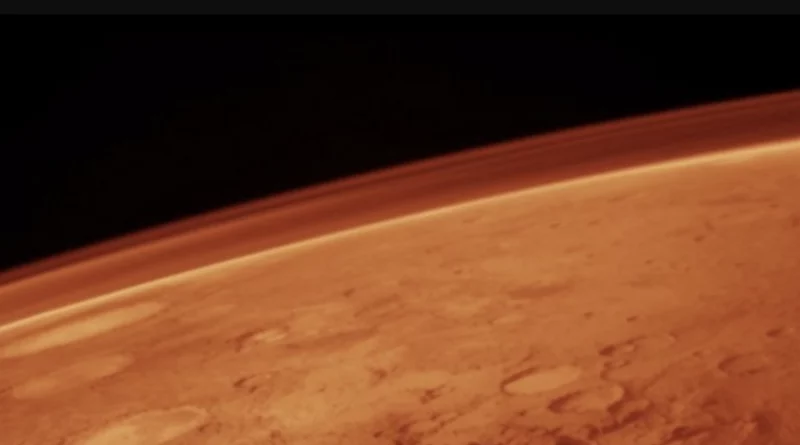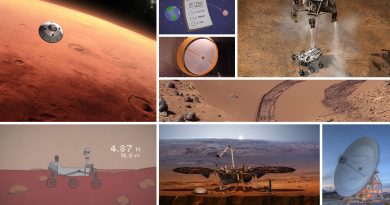NASA’s Mars Sample Return Mission Faces Funding Hurdles An In-Depth Analysis
NASA’s ambitious plans for Mars have hit a roadblock with the recent decision to cut funding for the Mars Sample Return mission, leaving both critics and proponents bewildered. The decision has sparked criticism from lawmakers, raising concerns about its implications on jobs, scientific progress, and the overall vision for Mars exploration. This article delves into the details of NASA’s Mars Sample Return mission, the budgetary challenges it faces, and the potential consequences of the recent funding cuts.

The Mars Sample Return Mission:
Initial Enthusiasm and Recent Setbacks:
NASA’s Mars Sample Return mission is a collaborative effort involving the Perseverance rover and a partnership with the European Space Agency (ESA) for later phases. The mission aims to bring samples of Martian rocks and dust back to Earth for in-depth analysis. However, recent budgetary challenges have compelled NASA to slow down the program, raising questions about the feasibility of this groundbreaking scientific endeavor.
Perseverance Rover’s Role:
The Perseverance rover, currently exploring the Martian surface, plays a pivotal role in the Mars Sample Return mission. Equipped with the capability to collect rocks and dust in tubes, the rover sets the stage for the subsequent phases of sample retrieval. The collaboration with the ESA adds an international dimension to the mission, emphasizing the global significance of Mars exploration.
Collaboration with the European Space Agency:
The Mars Sample Return mission involves a complex process of sample collection, retrieval, and transport. The ESA’s role includes assisting in the retrieval stage by sending a rover named Fetch to pick up the tubes left by Perseverance. The collected samples will then be loaded into a spacecraft, which will launch from the Martian surface and rendezvous with a larger spacecraft for the journey back to Earth.
Congressional Criticism and Concerns:
The decision to cut funding for the Mars Sample Return mission has ignited criticism from California lawmakers, led by prominent figures such as Rep. Adam Schiff and Sen. Alex Padilla. In a letter to NASA administrator Bill Nelson, lawmakers expressed their concerns about the potential loss of jobs, a setback of up to a decade in scientific progress, and the perceived rash decision-making during the appropriations stage.
Impact on NASA’s Jet Propulsion Laboratory:
NASA’s California-based Jet Propulsion Laboratory, responsible for creating robots sent to Mars, faces the brunt of job cuts resulting from the slashed funding. The letter emphasizes the impact on this key facility and questions the decision’s alignment with NASA’s broader goals, including countering global competition in space exploration.
Global Competition and Strategic Vision:
Lawmakers also draw attention to NASA’s global competition with other spacefaring superpowers, particularly China. The Mars Sample Return mission represents a critical component of asserting U.S. leadership in space exploration. The decision to curtail funding is viewed as potentially compromising this leadership stance, raising concerns about the broader strategic vision for Mars exploration.
Unrealistic Budget and Schedule:
An independent review of NASA’s Mars mission, released in September, revealed inherent challenges in the project’s budget and schedule. The initial $4 billion budget was deemed unrealistic, with projections indicating a potential escalation to $11 billion. This financial strain has undoubtedly influenced NASA’s decision to scale back and propose budget cuts, reflecting the need for a realistic assessment of the project’s scope and financial requirements.
Funding Uncertainties and Congressional Appropriations:
NASA’s budget for the Mars Sample Return mission hinges on final congressional appropriations. As of now, a House bill proposes NASA’s full funding request of $949.3 million, while a Senate bill offers only $300 million. The agency operates on a funding patch, relying on the previous year’s budget until the February 2 deadline for final appropriations. The funding uncertainties add an additional layer of complexity to the mission’s trajectory.
Evaluation of Budget Proposals:
While the House bill aligns with NASA’s full funding request, the Senate’s proposed budget falls significantly short. The evaluation of these budget proposals will determine the extent to which NASA can proceed with the Mars Sample Return mission. The agency’s capacity to navigate these financial challenges will impact the timeline and success of the mission.
Reassessing Mission Feasibility:
In light of budgetary constraints, NASA faces the imperative to reassess the feasibility of the Mars Sample Return mission. The independent review’s findings underscore the need for a realistic approach that balances scientific aspirations with financial prudence. A transparent evaluation of the mission’s goals, costs, and potential benefits will guide the agency in charting a viable path forward.
Congressional Advocacy and Public Support:
Lawmakers, scientists, and space enthusiasts alike play a crucial role in advocating for the Mars Sample Return mission. Transparent communication and collaboration between NASA and Congress will be essential to garner the necessary support and secure adequate funding. Public engagement and awareness can also contribute to building a consensus around the importance of Mars exploration and its broader implications for scientific advancement.
International Collaboration and Scientific Impact:
The collaboration with the ESA highlights the international significance of the Mars Sample Return mission. Strengthening international partnerships and leveraging collective expertise can enhance the mission’s resilience against budgetary challenges. The scientific impact of bringing Martian samples to Earth extends beyond national boundaries, contributing to a global understanding of the Red Planet’s mysteries.

Conclusion:
NASA’s decision to cut funding for the Mars Sample Return mission marks a critical juncture in the trajectory of Mars exploration. As the space agency navigates



